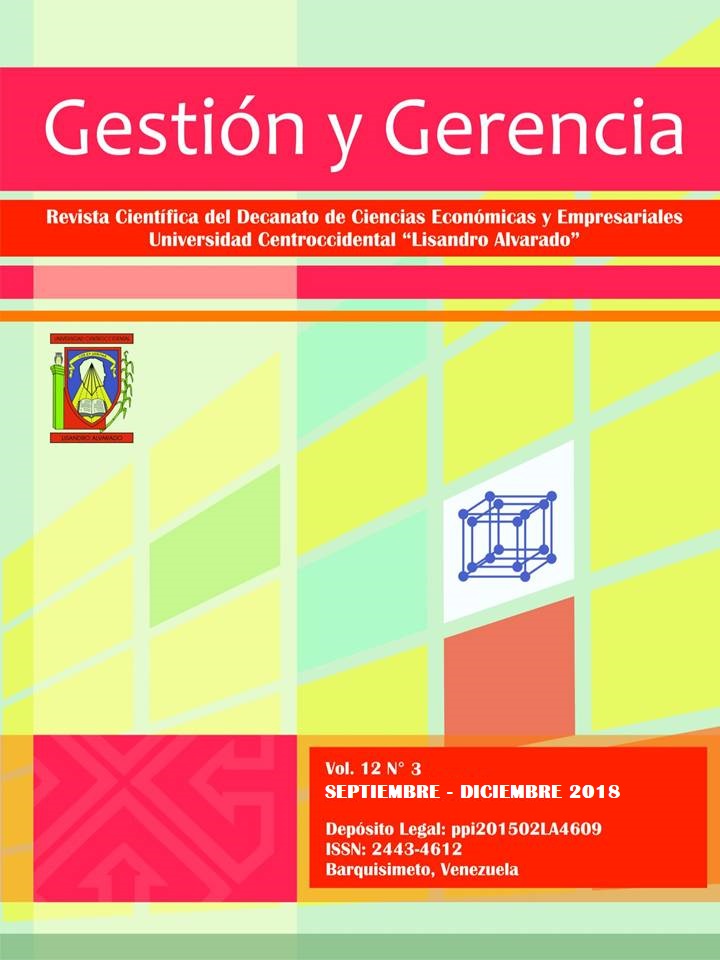Ecosistema naranja: elementos en las artes escénicas en Carora, Venezuela
Keywords:
Orange economy, orange ecosystem, supply, demand, institutionsAbstract
The Orange Economy relates the creative, cultural, economic and social sector worldwide, this sector is transformed into an opportunity focused on talent, creations exchange and give life to completely innovative products, full of intellectual and expressive value. The research focuses on the orange ecosystem at the local level of the city, including dance and theater. The objectives are to determine the offer, describe the demand and identify the institutions related to the creative sector. Quantitative research, with a descriptive, cross-sectional methodology and a field design was undertaken; the technique of data collection was through a survey and an observation guide. The results were analyzed in SPSS and Excel statistical programs expressed in pie charts and tables. It is concluded that the city has organizations and academic institutions of recognized tradition dedicated to the mentioned arts, and high level organizers of cultural activities. Government participation and the private sector are recommended to form an Orange Ecosystem in the City
Downloads
References
Infinita, [Libro en Línea] Disponible en: https://publications.iadb.org/bitstream/handle/11319/3659/La%20economia%20naranja%3A%20Una%20oportunidad%20infinita.pdf [Consulta: 2016, Febrero 25]
Whittaker, J. (1984). El Cerebro debe Actuar, [Libro en Línea] Disponible en: http://counselingamericas.org/pdf/libros/04_psico logia_social_perspectivas_y_aportaciones_hacia_un_mundo_posible.pdf. [Consulta: 2016, Mayo 05]
Fundación Teatro Alirio Díaz (2017) Carora Edo. Lara – Venezuela [Consulta: 2016, Junio]
Fundación Republica de Guarimure (2017) Carora Edo. Lara – Venezuela [Consulta: 2016, Junio]
Published
How to Cite
Issue
Section

This work is licensed under a Creative Commons Attribution-NonCommercial-ShareAlike 4.0 International License.
Derechos del/de autor/es a partir del año de publicación
Esta obra está bajo la licencia:
Creative Commons Reconocimiento-NoComercial-CompartirIgual 4.0 Internacional (CC BY-NC-SA 4.0)
Las opiniones expresadas por los autores no necesariamente reflejan la postura del editor de la publicación ni de la UCLA. Se autoriza la reproducción total o parcial de los textos aquí publicados, siempre y cuando se cite la fuente completa y la dirección electrónica de esta revista. Los autores(as) tienen el derecho de utilizar sus artículos para cualquier propósito siempre y cuando se realice sin fines de lucro. Los autores(as) pueden publicar en internet o cualquier otro medio la versión final aprobada de su trabajo, luego que esta ha sido publicada en esta revista.




